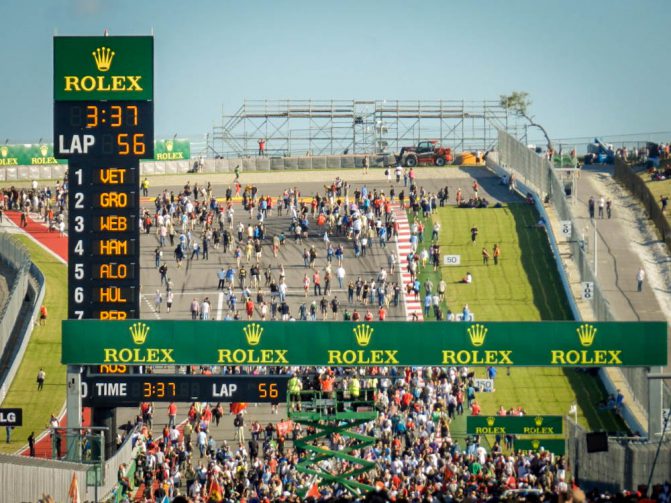It seemed almost too good to be true. And for a time it looked like it might be.
Up until the point that the chequered flag fell the Italian Grand Prix weekend could not have gone better for Lewis Hamilton. He entered it with a clear lead on the next guy in the points, his habitual coat tail grabber and team mate Nico Rosberg. He looked the quickest thing out there from the earliest Friday running, in a very quick and upgraded Mercedes. Pole was comfortable. Even better for him Rosberg had to abandon his new engine due to technical problems, putting him out of striking range.
And once he’d led off the line it rapidly was a case of Lewis vs. reliability for the victory. The gap to Sebastian Vettel next up built time after time so that after the Englishman’s solitary pit stop – which went like a dream, natch – he was 18 seconds to the good. Even better for him Rosberg later would retire with mechanical problems.
Lewis’s win threatened from an unlikely source
But as I said it looked for a while that it would indeed be too good to be true – in a very real sense. And astonishingly it was something other than reliability that threatened Lewis’s win. With a handful of laps left and apparently cruising to victory his engineer oddly asked him on the radio to push. Lewis did, and won by 25 seconds, but almost as soon as he had matters started to become clear.
As part of the Spa fallout Pirelli and the FIA had mandated new minimum tyre starting pressures, and had tested those of several cars on the starting grid, including Lewis’s. And Lewis’s left rear was 0.3 PSI under the limit. Not allowed. And that pushing mentioned was because Mercedes, who’d just been given notice of the trouble brewing, was guarding against a possible 25 second penalty.
Yet it looked like the punishment would be much tougher than that and Lewis’s name could be struck from the results in that peculiar motorsport way. Plenty assumed that was the sanction, and that the case was of the open and shut variety.
Merc dodges the bullet
But no, Mercedes got away with it. On the grounds that it demonstrated the tyre was OK when fitted to the car, it’s just that the pressure had dropped after the tyre warming blankets had been switched off (which is “normal procedure” apparently).
From reading between the lines doubts about the measurement protocols also helped Merc’s case. Which raises the question of how easy this rule will be to enforce – tyre pressure, unlike car dimensions say, are a living thing. They change with various external factors. We might not have heard the last of this.
The real take-out from the Italian Grand Prix therefore was easy to miss. That Lewis, in effect, won his third world title. His points lead now stands at 53 – more than two clear wins – and while seven rounds remain it is near-impossible to envisage how that can be hauled back. Not with the way Lewis is going at any rate. And this predominance has little to do with fortune or the strokes of stewards’ pens.




